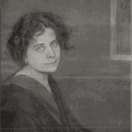

Originally a committed socialist writer, Galgóczi gradually lost faith in the regime, and her work reflects her growing criticism of political repression and corruption. On May 20, 1989, she died unexpectedly of a heart attack in her family home. She lived openly as a lesbian from the 1970s, and her long-time partner was actress Hilda Gobbi. Between 19, she attended the Budapest Theater College, majoring in dramaturgy. Between 19, she attended the teacher's training school of Győr, graduating in 1949. Galgóczi attended primary school in Ménfőcsanak, the small village where she was born, and attended high school between 19 in the nearby city of Győr. Her work is often described as realist fiction. For more guidance, see Wikipedia:Translation.Įrzsébet Galgóczi (27 August 1930 – ) was a Hungarian writer, playwright, and screenwriter.

You should also add the template to the talk page.A model attribution edit summary is Content in this edit is translated from the existing Hungarian Wikipedia article at ] see its history for attribution. You must provide copyright attribution in the edit summary accompanying your translation by providing an interlanguage link to the source of your translation.If possible, verify the text with references provided in the foreign-language article. Do not translate text that appears unreliable or low-quality.Consider adding a topic to this template: there are already 594 articles in the main category, and specifying |topic= will aid in categorization.Machine translation, like DeepL or Google Translate, is a useful starting point for translations, but translators must revise errors as necessary and confirm that the translation is accurate, rather than simply copy-pasting machine-translated text into the English Wikipedia.View a machine-translated version of the Hungarian article.I for one am immensely glad for her work. (Actually in this book she also talks about how hard it was to be a writer from a peasant family and NOT give in to the demands to write cheerful propagandistic fiction.) This is kind of like "collectivization, as no one else will dare show you". It's also very much *not* socialist realism or any kind of oversimplified propaganda. Yes, her work is mostly about collective farms. She was incredibly insightful and incisive and had so many quotables not only in her fiction, but also in her nonfiction. I'm sad that even Hungarians don't seem to read Galgóczi any more, or when they do, only in relation to her having been a lesbian author. It was also fascinating to see how both the author's perspective and the policies of the Communist regime changed over time. Journalism was very different back then, but some things never change. Investigate journalism mostly about collective farms and farmers in 1950s-1980s Hungary (plus a piece each on Cuba and Kazakhstan).


 0 kommentar(er)
0 kommentar(er)
